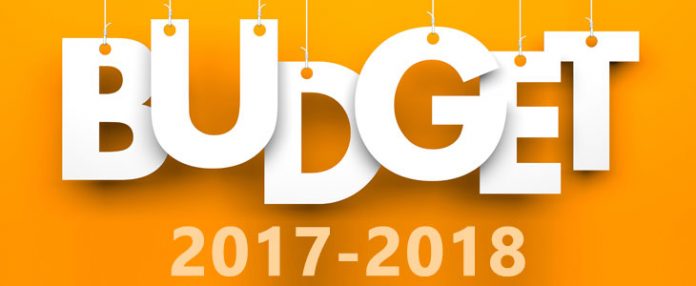The federal cabinet Thursday approved ‘Budget Strategy Paper 2017-20’, eyeing six percent GDP growth for the year 2017-18 with a special focus on enhancing efforts to increase revenue generation.
Prime Minister Muhammad Nawaz Sharif chaired the session. Since it was the first cabinet meeting following the resolution of the Dawn leaks issue, the ministers were upbeat and showered praises on the prime minister for adding another success.
A source told Pakistan Today that most of the ministers flattered the prime minister, suggesting that since the biggest hurdle had been climbed, the prime minister would brace another win sooner when the ruling family would also be cleared of all “fabricated allegations” levelled in Panamagate case.
“Some cabinet ministers even told the prime minister that with the settling of the row with the military, the long-awaited dream of civilian supremacy had been achieved and again the credit went to the prime minister’s prudent leadership,” the source said.
The cabinet, which met after a lapse of almost a month, took up the ‘Budget Strategy Paper 2017-20’, an overview of the upcoming budget strategy.
Finance secretary on the occasion made a detailed presentation on the current state of the economy, outline of the budget 2017-18 and the medium-term macroeconomic framework. He apprised the members of the cabinet that despite challenges, Pakistan’s economy was moving in the right direction. He said that the inflation has been contained to 4.09 percent in the first nine months of the current financial year. He said that the credit to private sector has grown by 53 percent and agriculture credit has risen by 23 percent in the first ten months as compared to the same period last year.
In order to achieve six percent of economic growth, the finance secretary said that the measures will be taken to enhance growth in agriculture, industrial and services sectors of the economy.
Briefing the cabinet members on the upcoming budget, Finance Minister Senator Ishaq Dar said that the government had devised a medium-term macroeconomic strategy to increase foreign reserves and reduce fiscal deficit.
“As per the Fiscal Responsibility and Debt Limitations Act, the fiscal deficit of the federal government would be brought down to four percent of GDP by June 2020. The upcoming budget will demonstrate fiscal prudence while focusing on key investment sectors such as CPEC, energy, communications, poverty reduction etc. The fiscal prudence will provide impetus to lower inflation, higher investments and low public debts,” he added.
The minister also said that the government had initiated a study on the re-evaluation of the GDP as many sectors were currently not fully recorded in the national accounts.
For the budget year 2017-18, Dar said that the government would aim to achieve 6 percent of economic growth and enhance efforts to increase revenue generation. The meeting was also informed about the Government’s resolve to provide incentives to the farmer community for enhancing agriculture productivity.
It was apprised that the Prime Minister’s agriculture package has yielded a positive impact on the agriculture output as demonstrated by bumper crops of sugarcane, wheat and maize.
Addressing the meeting, Prime Minister Nawaz Sharif said that the focus of the next year’s budget would be on achieving higher, sustainable and inclusive growth. He directed the cabinet members to accord priority to the areas under their domain that could lead to improved economic growth and generate additional employment opportunities.
The Prime Minister said that the government is determined to increase investments in both human and physical infrastructure. In this regard, he said, highest priority would be accorded to increase in development budget and poverty reduction. He said that the time has come for the nation to reap the benefits of the economic policies of the government.
The prime minister asked members of the cabinet to suggest measures which would discourage Hundi and other informal channels for money transfers leading thereby to increased foreign remittances through regular channels. The prime minister appreciated market capitalisation in the stock exchange that would soon touch $100 billion.




